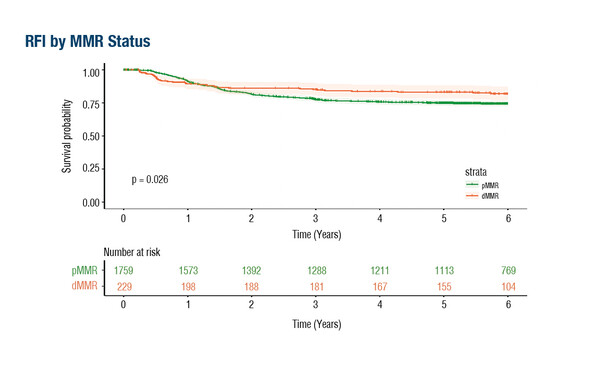Cancer imaging and identification of predictive biomarkers are the best performed tasks reported in studies presented at ESMO Congress 2023
In recent years, artificial intelligence (AI) applications have transitioned from research to clinical practice, with several AI tools now US FDA-approved or CE-marked in Europe, and many others currently under evaluation. At the ESMO Congress 2023 (Madrid, 20–24 October), performance data for several of AI tools were presented, highlighting their benefits across a range of applications.
In a poster presentation, an AI tool previously developed for pulmonary nodule analysis demonstrated, for the first time, the ability to predict lung cancer risk in patients with ground glass nodules (GGNs) on CT images, potentially leading to a more appropriate use of invasive interventions in patients with GGNs (Abstract 1266P). When CT images from 169 cancers and 347 benign nodules were evaluated using the AI tool, it demonstrated a slightly higher ability to positively predict malignancy in GGNs compared to two reference models, with an area under the receiver operating characteristic curve (AUC) of 89.1% versus 86.5% and 80.9%. Furthermore, this tool ruled out malignancy for 48.7% of benign modules (at 100% sensitivity) compared with 14.1% and 16.7% for the reference models. Dr Raquel Perez-Lopez, from Vall d′Hebron Institute of Oncology, Barcelona, Spain, comments, “This study takes an AI model that has been designed to identify the most common pattern of lung cancer, i.e., a well-defined, solid nodule, and fine-tunes it to detect a less common type of lung cancer pattern, i.e., GGNs, which are poorly defined and less dense malignancies. This is a common approach in AI: to establish a model in a particular setting and then improve its performance to find specific patterns for less common diseases, in this case, lung cancer subtypes. Despite its critical role in cancer detection, medical imaging remains limited by interobserver variability and by the human eye’s limitations in detecting microscopic tumours. AI tools excel in this area – they identify patterns beyond human perception and efficiently process vast amounts of data.”
The role of AI in identifying predictive biomarkers of clinical outcome was also explored in two studies. In the first one, NaroNet, a deep learning AI framework, was evaluated to identify biomarkers predictive of efficacy and toxicity outcomes in 53 patients with advanced melanoma treated with immune checkpoint inhibitors (Abstract 1024MO). In pre-treatment tumour specimens, NaroNet identified two tumour microenvironment neighbourhoods that were both significantly associated with grade 3–4 immune-related adverse events (both p=0.008) and disease progression (both p=0.009). The study authors proposed that these neighbourhoods could potentially serve as pretreatment biomarkers to identify patients who might benefit from alternative therapeutic regimens. In a second study, an AI-powered analysis of tumour infiltrating lymphocytes (TILs) in whole-slide images from patients with metastatic colorectal cancer (CRC) treated with a checkpoint inhibitor and chemotherapy was performed (Abstract 571P). In this analysis, the Lunit SCOPE IO tool effectively characterised the tumour microenvironment and revealed associations between several immune-related biomarkers and outcomes. “Applying AI models to digitalised haematoxylin and eosin (H&E)-stained samples, as showcased in these two studies, underscores their potential to extract biologically and clinically significant insights”, notes Perez-Lopez. “This may have profound implications, particularly in the field of cancer immunotherapy, as it enables the prediction of treatment response, risk of progression and risk of immunotherapy-related side effects.”
Early results in the performance of AI models for predicting relapse when combining clinical data with radiomic results from CT scans have been observed, showing another promising area of application of AI. A study presented in Madrid involved the analysis of baseline CT data from 170 patients with localised CRC, of whom 69 relapsed (Abstract 579P). The authors found that the model containing radiomic data outperformed a model containing only clinical features for predicting relapse in this population (p=0.023). “While the results of this study are encouraging, we now need to generate large well-annotated datasets to improve the performance of the models and demonstrate generalisability in order to produce clinically meaningful results” comments Perez-Lopez.
By automating time-consuming tasks, AI systems also hold promise for streamlining workflow in molecular pathology laboratories. An example of this is shown in an evaluation of AIMMeR, an AI tool used to automate the determination of mismatch repair (MMR) protein status in immunohistochemistry images from patients with stage II/III CRC (Abstract 568P) presented at the Congress. In the analysis – which included over 2,000 cases from the SCOT trial comparing 3 and 6 months of oxaliplatin-based adjuvant chemotherapy – AIMMeR exhibited high accuracy in identifying MMR deficiency, demonstrating both prognostic and predictive value in this cohort.
Reflecting on these results, Perez-Lopez says, “AI tools have the potential to manage repetitive tasks, freeing up healthcare professionals (HCPs) to manage more complex aspects of patient care. The transition to AI support is generally viewed positively in the healthcare community as it alleviates the burden of time-consuming tasks, allowing HCPs to focus on critical decision-making. AI tools will be used in clinical practice in a supportive capacity, with pathologists and radiologists still being required to evaluate results before making clinical decisions.” However, she notes that some challenges remain to their widespread use in oncology, including improving the performance of these tools to match or exceed current clinical techniques and ensuring that physicians understand and have confidence in these tools. “The accuracy, reliability and clinical relevance of AI models must be demonstrated through rigorous clinical trials. Translation of AI systems into clinical practice is not a quick process, but I believe many of the challenges are surmountable with continued development,” she concludes.
Abstracts discussed:
Vachani A, et al. Prediction of lung cancer risk in ground-glass nodules using deep learning from CT images. ESMO Congress 2023, Abstract 1266P
Poster Display – NSCLC, early stage, 21.10.2023, h. 12.00 – 13.00, Hall 8
Jiminez-Sanchez D, et al. Interpretable AI-identified spatial tumor microenvironment (TME) neighborhoods associate with severe immune-related adverse events (IRAE) and progressive disease (PD) in patients with melanoma treated with anti-PD-1-based therapy. ESMO Congress 2023, Abstract 1024MO
Mini Oral Session – Investigational immunotherapy, 21.10.2023, h. 16.30 – 17.50, Málaga Auditorium – Hall 10
Jabbar F, et al. Single cell AI-based detection of DNA mismatch repair deficiency in 1,988 colorectal cancers reveals prognostic and predictive value in the SCOT trial. ESMO Congress 2023, Abstract 568P
Poster Display – Colorectal cancer, 22.10.2023, h. 12.00 – 13.00, Hall 8
Carullo M, et al. Artificial intelligence-powered analysis of tumor lymphocytes infiltration: a translational analysis of AtezoTRIBE trial. ESMO Congress 2023, Abstract 571P
Poster Display – Colorectal cancer, 22.10.2023, h. 12.00 – 13.00, Hall 8
Bueno Gómez A, et al. A clinico-imaging predictive artificial intelligence model of relapse in colon cancer using baseline CT scans. ESMO Congress 2023, Abstract 579P
Poster Display – Colorectal cancer, 22.10.2023, h. 12.00 – 13.00, Hall 8







